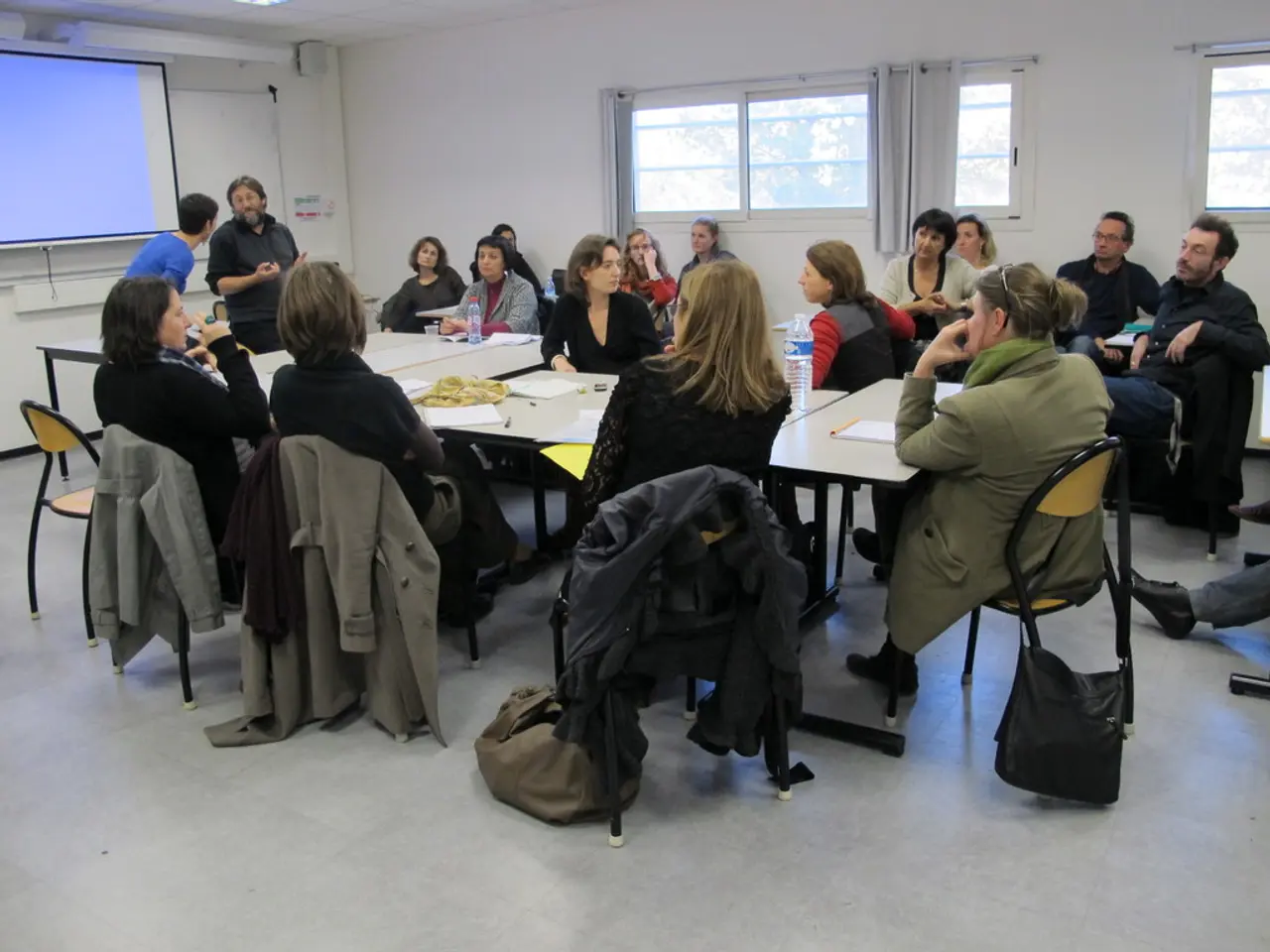"Lavrov answers Trump's demand with resistance" or "Lavrov counters Trump's threat with resilience"
In a whirlwind of diplomatic activities, Russian Foreign Minister Sergei Lavrov has embarked on his longest foreign trip this year, visiting Malaysia, North Korea, and China, marking the seventh day of his journey. The trip includes a one-night stopover in Moscow before resuming his travels.
Lavrov's visit to Tianjin, China, was noteworthy as he attended the Shanghai Cooperation Organization (SCO) Council of Foreign Ministers and met with his Chinese counterpart, Wang Yi, twice in just four days. During these discussions, the focus was primarily on the prospects for the development of the SCO, an organization that aims to create a regional security system. China, along with Russia, is ready to ensure the SCO's transition to a new level.
Meanwhile, realistic approaches were discussed at the SCO Council of Foreign Ministers, with Lavrov stating that they will continue to search for possible options. The SCO is an important platform for the development of solidarity among global South countries, according to Wang Yi.
In China, Lavrov also participated in ASEAN talks and met with US Secretary of State Marco Rubio. However, the world's attention has been drawn elsewhere, as President Trump's 50-day ultimatum on Ukraine to Russia has set the stage for a significant shift in US policy on the Russia-Ukraine conflict.
Trump's ultimatum represents a pivot to more assertive American support for Ukraine, coupled with a direct threat to Russia. The key factors behind this ultimatum include increased weapons support for Ukraine, pressure on Russia for a ceasefire, and concerns about potential escalation.
Trump announced a "really big" deal to supply Ukraine with new weapons, including missiles, air defense systems, and artillery shells. This represents a seismic shift from his earlier reluctance to provide anything but defensive weapons to Ukraine. Additionally, Trump demanded that Russia agree to a ceasefire within 50 days or face "severe tariffs," specifically threatening 100% secondary tariffs on countries doing business with Russia (such as China and India) that buy Russian oil.
The rationale behind the deadline is to accelerate a resolution to the over three-year conflict. Trump’s shift from previous positions — which involved criticizing Ukraine and praising Russia — to actively arming and supporting Ukraine signals an intent to apply maximum pressure on Russia to cease hostilities.
However, some Ukrainian leaders have expressed worry that the 50-day deadline might prompt Russian President Putin to intensify his military strikes and summer offensives before the deadline expires. Russia has rejected the ultimatum as unacceptable, insisting that the war will continue until its goals are met.
Lavrov's journey continued as he flew to Kuala Lumpur on July 9, following his visit to Tianjin. Despite not receiving any specific proposals from Moscow or Beijing regarding its nuclear programme, Iran continues negotiations on this matter with Russia and China.
Lavrov's visit to North Korea also marked a significant event, as the second round of the Russia-Korea strategic dialogue took place. The details of these discussions remain undisclosed, but they undoubtedly add another layer to the complex web of international diplomacy.
As Lavrov's journey continues, it is clear that global politics remain dynamic, with various nations navigating a complex landscape of alliances, negotiations, and diplomatic manoeuvres. The world watches with bated breath as these events unfold, eagerly anticipating the outcomes of these high-stakes games of diplomacy.
- The Shanghai Cooperation Organization (SCO) Council of Foreign Ministers discussions, which included Russian Foreign Minister Sergei Lavrov, highlighted the need for realistic approaches regarding war-and-conflicts, specifically the Russia-Ukraine conflict, as well as possible policy-and-legislation changes.
- Amidst Lavrov's diplomatic tour, global attention has been drawn to the US policy-and-legislation shift towards the Russia-Ukraine conflict, with President Trump's ultimatum potentially leading to increased weapons support for Ukraine and potential escalation, making it general-news of international importance.







